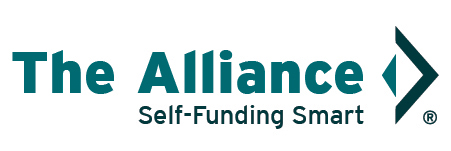An Employer’s Guide to Fully Insured vs. Self Insured Health Plans
By Mike Roche, Director of Business Development
 The debate between fully insured vs. self insured health plans for employers is becoming clear. As enrollment numbers for traditional commercial plans steadily decline, self insured (or self-funded) plans continue to grow.
The debate between fully insured vs. self insured health plans for employers is becoming clear. As enrollment numbers for traditional commercial plans steadily decline, self insured (or self-funded) plans continue to grow.
What once was only for multinational corporations, like Walmart and Microsoft, has now become popular among small and mid-size employers thanks to group-purchasing cooperatives. With 2022 set to be the most expensive year ever, many employers are considering making the switch, so let’s define a fully insured vs. self insured health plan.
What is a Fully Insured Health Plan?
Fully insured health plans are group health plans where an employer buys health insurance for their employees through a commercial insurer. The plan’s cost is paid through premiums by the employer, who may cost-share with employees via co-pays, payroll deductions, etc.
Employers that choose a fully insured health plan vs. a self insured one are willing to pay more because it’s easy – there’s no administrative burden or effort on the employer’s part. Additionally, the potential for high-cost claimants is baked into the premium, so the insurer bears all the risk of catastrophic claims.
There are some down sides to fully insured health plans, though. Besides annual price hikes – employer health coverage is expected to increase 5% this year – there are also no refunds for unused care. If an employer’s workforce is relatively healthy and utilizes preventive care or does not use health care services, they pay the same premium.
What is a Self Insured Health Plan?
A self insured health plan is where the employer takes on all the risk – and reward – and pays their employees’ health claims out-of-pocket. The employer sets up a fund or trust earmarked to pay for their employees’ health claims.
Engaged employers with healthy workforces like the self-funded option because it can save them a lot of money by only paying for the care that’s used. Plus, they have more control over their network design and benefit plan design because they gain transparent access to their data.
The Alliance helps self-funded employers analyze their data to show them where their health care dollars are being spent. Employers can use these suggestions to adjust their health plan, further improving their cost-savings year after year. Fully insured employers don’t have the same decision-making tools because commercial insurers do not provide access to their claims data.
The risk in a self funded plan vs. fully insured option is the potential for high-cost claimants, like employees that may get cancer or require dialysis. However, that’s where stop-loss insurance comes into play. Stop-loss mitigates high-cost claims and helps make self-funding accessible for employers with sicker patients on their plan.
Self Insuring Smarter
Unlike other group-purchasing coalitions, The Alliance is a not-for-profit cooperative, which means we’re employer-owned and led and give our profits back to our employer-owners.
And that’s just one way The Alliance does self-funding smarter. It’s not easy for an employer to become self insured, but it is rewarding – both financially (through cost-savings) and altruistically (by providing better care options to employees).
Joining a group-purchasing cooperative offers unique network and benefit plan design options that are typically restricted within a fully insured model. To learn more about these strategies or fully insured vs. self insured health plans in general, please email me at mroche@the-alliance.org or fill out this form – I’d love to answer your questions!
